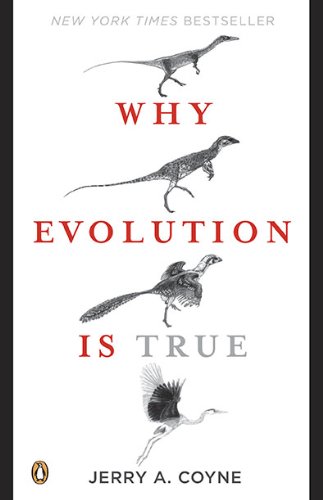Humans Should be Proud
Evolution is neither moral nor immoral. It just is, and we make of it what we will. I have tried to show that two things we can make of it are that itís simple and itís marvelous. And far from constricting our actions, the study of evolution can liberate our minds. Human beings may be only one small twig on the vast branching tree of evolution, but weíre a very special animal. As natural selection forged our brains, it opened up for us whole new worlds. We have learned how to improve our lives immeasurably over those of our ancestors, who were plagued with disease, discomfort, and a constant search for food. We can fly above the tallest mountains, dive deep below the sea, and even travel to other planets. We make symphonies, poems, and books to fulfill our aesthetic passions and emotional needs. No other species has accomplished anything remotely similar.
But there is something even more wondrous. We are the one creature to whom natural selection has bequeathed a brain complex enough to comprehend the laws that govern the universe. And we should be proud that we are the only species that has figured out how we came to be.
Notes:
We are the one species of 3.5 billion years of evolution that has figured out how we got here.
Folksonomies: evolution wonder vision
Taxonomies:
/science/medicine/genetics (0.588064)
/science/biology/zoology/endangered species (0.527593)
/pets/reptiles (0.450530)
Keywords:
vast branching tree (0.901328 (neutral:0.000000)), natural selection (0.847952 (positive:0.578733)), Human beings (0.718975 (positive:0.298699)), small twig (0.688493 (neutral:0.000000)), special animal (0.686908 (positive:0.602731)), new worlds (0.686656 (neutral:0.000000)), tallest mountains (0.682269 (positive:0.387684)), aesthetic passions (0.670084 (positive:0.560357)), constant search (0.663891 (negative:-0.558683)), emotional needs (0.634844 (positive:0.560357)), brain complex (0.616163 (positive:0.838423)), evolution (0.580001 (negative:-0.026452)), species (0.457463 (positive:0.611750)), Proud (0.355515 (positive:0.857820)), discomfort (0.325961 (negative:-0.708029)), brains (0.314603 (negative:-0.259690)), symphonies (0.313137 (neutral:0.000000)), Humans (0.307698 (positive:0.857820)), creature (0.306036 (negative:-0.287848)), minds (0.305765 (positive:0.438398)), planets (0.298476 (neutral:0.000000)), things (0.295935 (negative:-0.631010)), actions (0.295214 (neutral:0.000000)), ancestors (0.292938 (positive:0.421716)), study (0.288295 (positive:0.438398)), lives (0.287589 (positive:0.421716)), laws (0.284681 (negative:-0.386899)), universe (0.284526 (negative:-0.386899)), disease (0.282373 (negative:-0.698957)), food (0.282048 (negative:-0.558683))
Entities:
discomfort:HealthCondition (0.798984 (negative:-0.708029)), 3.5 billion years:Quantity (0.798984 (neutral:0.000000))
Concepts:
Human (0.959688): dbpedia | freebase | opencyc
Natural selection (0.806705): dbpedia | freebase
Universe (0.614371): dbpedia | freebase
Morality (0.598399): dbpedia | freebase
Charles Darwin (0.552793): dbpedia | freebase | opencyc | yago
Species (0.546315): dbpedia | freebase | opencyc
Evolution (0.491592): dbpedia | freebase | opencyc
Earth (0.456022): dbpedia | freebase






